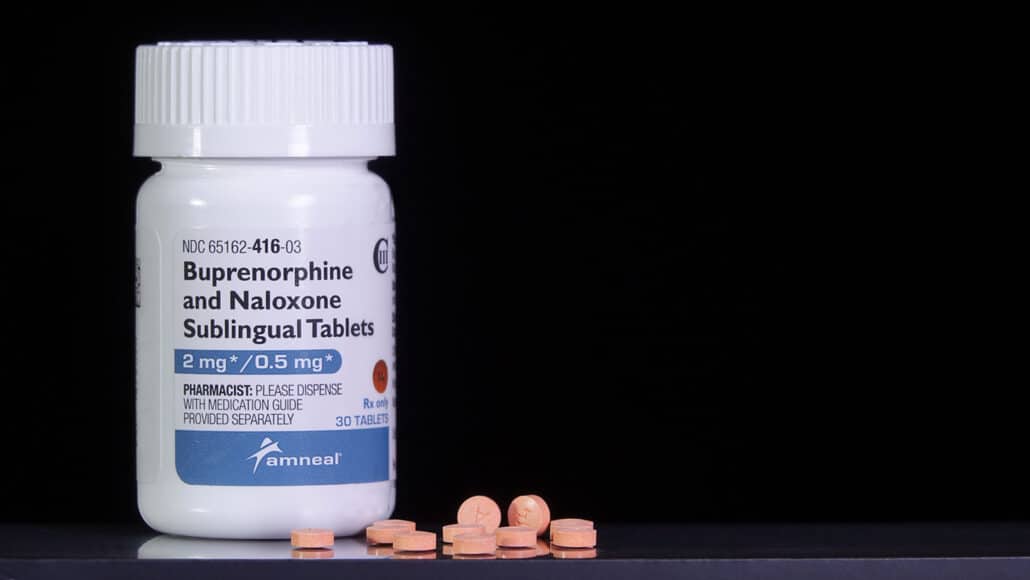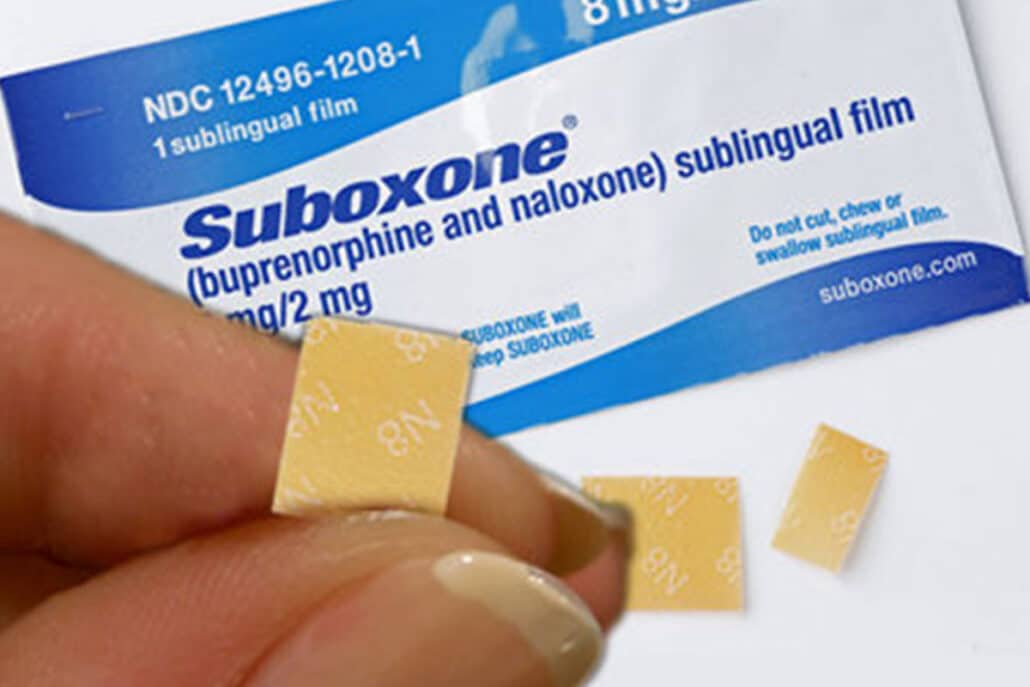For people who need treatment for opioid use disorder, Suboxone may be an effective solution.[1] It is often used as one part of a medication-assisted treatment plan. A MAT program involves the use of behavioral therapy and medications that are less harmful or have less potential for abuse. This approach may help more people remain in recovery. Suboxone contains buprenorphine and naloxone.[2] How it works will be discussed in an upcoming section. Since Suboxone can still be harmful when misused, it is essential to use it under the supervision of a doctor.
Table of Contents
- 1 Understanding the Role of Suboxone in Opioid Addiction Treatment
- 2 Qualifications of a Suboxone Doctor
- 3 Finding a Suboxone Doctor: Steps and Resources
- 4 Questions To Ask When Choosing a Suboxone Doctor
- 5 Long Island Interventions Helps With Suboxone Treatment Resources
- 6 Preparing for Your First Appointment With a Suboxone Doctor
- 7 Moving Forward: Long-Term Treatment With Suboxone
- 8 Finding Suboxone Doctors Near Long Island
Understanding the Role of Suboxone in Opioid Addiction Treatment
Suboxone is available as a sublingual film or tablet. To better understand how Suboxone works for treating OUD, it helps to understand how the two drugs it contains work. The active drug in Suboxone is buprenorphine, and it is a partial opioid agonist. While it functions similar to heroin and other opioids, its effects are much milder.[3] However, unlike stronger opioids, the drug has a limit for the effects it produces. That function makes it less likely to lead to dependency.

Naloxone is the other substance in Suboxone. As an opioid antagonist, naloxone blocks the effects of opioids. The substance is often administered to reverse overdose effects and save a person’s life. It will only work in the form of an injection or a nasal spray, which may leave you wondering why it is included. Adding naloxone helps prevent people from misusing Suboxone by injecting or snorting it.[4] Since every person’s needs and history differ, prescriptions may differ. This is why it is important to work with a doctor. Also, professional supervision improves your chances of success with Suboxone treatment.
Benefits of Suboxone
The benefits of Suboxone outweigh the potential disadvantages. Some possible benefits include:
- More career opportunities
- Better relationships
- Improved financial security
- Better physical and mental health
- Lower drug-related mortality risk
- Improved stability and confidence
There may be other personal benefits as well.
Potential Risks of Suboxone
When used incorrectly, Suboxone can cause irritability, shaking, diarrhea and other common withdrawal symptoms. Some potential side effects of the drug include:[3]
- Headache
- Vomiting
- Nausea
- Insomnia
- Sweating
- Constipation
- Swelling in the limbs
- Oral numbness
Qualifications of a Suboxone Doctor
Although qualified doctors can prescribe medications, legally prescribing Suboxone requires some additional training and certification. To comply with the 2022 Medication Access and Training Expansion Act, doctors who want to prescribe Suboxone or similar medications must complete an eight-hour course.[5] Once they complete it, they can apply for a DEA-issued registration. That registration can be renewed if they meet the requirements.
The training course is important to help doctors understand Suboxone treatment protocols. In OUD treatment, a Suboxone doctor first spends time learning about a patient’s history. The doctor considers any other existing mental or physical health issues and determines a dose. Also, the doctor will provide checkups at specific times to monitor outcomes. As part of monitoring, Suboxone doctors often work with other involved professionals. For example, a doctor may communicate with a therapist who provides ongoing counseling for a patient.

Finding a Suboxone Doctor: Steps and Resources
One way to locate a Suboxone doctor is to use a search engine to find nearby options and to then verify credentials. When doing this, make sure that the individual is a legitimate doctor first. The Federation of State Medical Boards provides information about doctors’ credentials, any actions against them and more.[6] If a doctor is in good standing, the individual should also have the required DEA registration for issuing medications to treat OUD. Doctors can provide their registration numbers. The Substance Abuse and Mental Health Services Administration provides a search tool for verifying physicians’ registration numbers.[7]
An easier way to find a trustworthy Suboxone doctor is to ask a primary care physician for a referral. Additionally, established addiction treatment centers can help people find Suboxone doctors. Trustworthy doctors and treatment centers know which Suboxone doctors provide adequate monitoring for patients.[8] Most insurance companies can also provide resources if you need a Suboxone doctor. To find in-network providers, call the number on your insurance card.
Questions To Ask When Choosing a Suboxone Doctor
Each person may have different questions to ask, and some people may not know where to begin. These are some examples of questions you should ask a Suboxone doctor:
- What are all my options for OUD?
- How may a MAT program with Suboxone help me?
- Will I be monitored by a doctor every time or by other medical staff?
- How frequently do I need to come in for appointments?
- How long will treatment last?
- How much experience do you have?
- Do you specialize in OUD treatment?
- What are your approaches to treatment and patient monitoring?
- What else should I do to support my recovery?
- Can I reach you or a qualified professional to help me in case of an emergency?
These questions may open up areas of discussion that are important. For example, finding out about who will monitor progress may be important. While some Suboxone doctors monitor patients at each appointment, others may have qualified PAs or NPs handle some appointments. Each person’s preferences and needs may vary, and that is why it is important to ask questions about the doctor and the treatment program.
Long Island Interventions Helps With Suboxone Treatment Resources
Long Island Interventions helps people find both intervention and treatment resources. The organization finds credible, licensed facilities that offer treatment programs in several counties. In addition to providing referrals to reputable Suboxone doctors, Long Island Interventions can provide resources for therapy, support groups and more. The goal is to provide you with helpful resources as you start the recovery journey. While some Suboxone doctors may provide outpatient treatment, there are also inpatient treatment programs in the area that may include MAT approaches for OUD.

Preparing for Your First Appointment With a Suboxone Doctor
You already learned some helpful questions to ask a Suboxone doctor. In addition to bringing your list of questions, these are some items that you may need:
- Driver’s license or state ID card
- List of any medications
- Insurance card
Follow the instructions to arrive early. For example, some clinics may ask you to arrive 20 minutes early. Others may ask you to arrive 15 minutes early or even 30 minutes before your appointment. Those times are based on the number of staff working and the time it takes to process new patients.
What To Expect
During an initial visit, a Suboxone doctor will usually ask questions about your medical history, current substance use and similar topics. You may be asked to provide a urine sample to see if there are other substances present. There may also be tests for hepatitis. These tests are informational to help doctors determine the ideal course of treatment for each patient. However, SAMHSA’s guidelines state that providers should not put off treatment if they need to wait for lab results.[9] Since information is confidential, it is important to be open and honest with Suboxone doctors about substance use. Good communication is essential for better treatment outcomes.
Moving Forward: Long-Term Treatment With Suboxone
Although some treatment programs focus on helping people taper off opioids, others may use Suboxone on a long-term basis. When a person tapers off Suboxone, a doctor adjusts the dose gradually to prevent withdrawal. SAMHSA strongly recommends psychosocial support in addition to Suboxone treatment.[9] A comprehensive approach is connected to better outcomes. Comprehensive treatment plans include behavioral therapy. In treatment centers, they may include individual therapy, family therapy, group therapy, holistic therapies and other support programs. To maximize the benefits of a MAT program, it is important to follow all medication recommendations and keep all appointments.

Finding Suboxone Doctors Near Long Island
Finding a reputable Suboxone doctor can make a world of difference in your recovery journey. When you are ready to make a positive change in life, you need someone who truly cares and provides you with the right support. Taking the first step may seem intimidating. However, there are many people who are ready and willing to help. If you or a loved one is struggling with OUD, Long Island Interventions can help. We provide intervention and treatment options if you are trying to help a loved one. If you need assistance for yourself, Long Island Interventions can provide you with resources for the type of help you need. In addition to resources for OUD, there are treatment resources for other substance use disorders.
Please contact Long Island Interventions for information about Suboxone near you.
References
[1] https://www.medicalnewstoday.com/articles/is-suboxone-addictive
[2] https://www.samhsa.gov/medications-substance-use-disorders/medications-counseling-related-conditions/buprenorphine
[3] https://www.drugs.com/medical-answers/how-does-suboxone-work-3557483/
[4] https://medicine.umich.edu/dept/psychiatry/news/archive/202009/reconsidering-usefulness-adding-naloxone-buprenorphine
[5] https://www.psychiatry.org/psychiatrists/practice/professional-interests/addiction-psychiatry/buprenorphine-prescriber-training
[6] https://www.verywellhealth.com/how-to-research-a-doctors-credentials-2614997
[7] https://www.samhsa.gov/medications-substance-use-disorders/pharmacist-verification/data-waiver-lookup
[8] https://www.buzzfeednews.com/article/scottpham/pittsburgh-suboxone-clinic-crackdown
[9] https://www.samhsa.gov/sites/default/files/quick-start-guide.pdf

